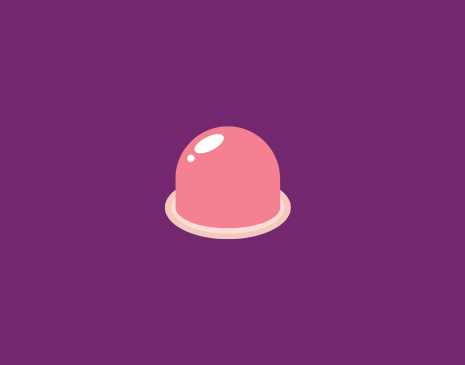7 Reasons why your vagina could be itchy
You have an itchy head; no problem, you scratch it freely in public. Itchy elbow; again, no problem, you scratch it freely in public. But, an itchy vagina; hey presto, instant problem. Apart from being an extremely awkward body part to scratch in public, an itchy vagina can be an underlying symptom of a yeast infection, sexually transmitted infection, or new product in your cleansing repertoire.
The unfortunate fact is that if you’re a woman, you’re bound to experience an itch in your knickers at least once in your lifetime. We’re not saying you have to love it; we’re just saying there’s no need to be ashamed of it. Itchy lady parts are completely normal, so let’s look at what could be causing your below-the-belt irritation.
Thrush
Thrush is the result of an overgrowth of the yeast, Candida albicans, that causes an imbalance in your vaginal microbiome. The most common symptoms of thrush are a thick, white, cottage cheese type discharge, itchiness of the vagina, burning sensation when peeing, and discomfort during sex. If you own a vagina, chances are you’ll bump into thrush at least once in your lifetime. It’s pretty harmless, but super annoying to deal with. The good news; thrush is treatable.
Pubic Lice
Pubic lice, or crabs as they’re (un)affectionately known, are small parasites that attach themselves to the skin and hair surrounding your genitals. Passed on via human-to-human contact with someone who is infected, the lead symptom of pubic lice is the most intense itchiness of your life. Think; mosquito level itchiness multiplied by ten million. We are not a fan of this irritating condition; however, millions of people are infected with pubic lice every year. It’s completely common and having pubic lice does not mean you are dirty or less human. You can pick up pubic lice treatments at your local pharmacy. In the meantime, take a steaming hot bath to relax.
Lichen Sclerosus
Lichen Sclerosus is a skin condition that creates sections of patchy, white skin that appear thinner than normal. Affecting the genital region, lichen sclerosus can deliver symptoms of severe itchiness, redness of skin, pain and discomfort. Or, it can show no symptoms at all. We know which option we prefer however if you fall into the former, visit your doctor for an official diagnosis and treatment option.
Psoriasis
When you have an overachiever of a body that forms new cells too quickly, this can lead to thickened, scaly patches of red, inflamed skin. Yet, when this occurs on the vulva, the area is too moist for dry scaling and psoriasis is more likely to appear in pink, itchy patches. It’s a common condition that normally affects the labia majora and can be treated with a topical steroid cream prescribed by your doctor.
Sexually Transmitted Infections (STIs)
Ah, the joys of sex far outweigh the negatives. That’s what you’ll believe until you’re struck with an episode of chlamydia, genital herpes, genital warts, trichomoniasis, or gonorrhoea; the top STIs with symptoms of vaginal itchiness, irritation, burning, discomfort, and pain. Usually, a short course of medication will see you jumping back on the proverbial horse in no time at all. We know you can’t stay angry at sex for long.
Contact Dermatitis
Have you ever bought the latest vaginal hygiene product to hit the shelves only to rush home, lather your lady bits, then end up a-la-fetal in bed due to the enormous levels of self-inflicted itchiness and pain? Ladies, this is a fine example of contact dermatitis; a condition that occurs when chemicals touch your body and cause a reaction. It may be time to brush up on your vagina cleaning etiquette.
That time of the month
We’re talking about your period. When it’s that time of the month, your body experiences a lot of hormonal changes, including a drop in estrogen that can cause vaginal dryness. Adding to the situation, the type of period products you use can also interrupt the moisture levels downstairs. Now, we don’t mean to get all Kalahari on you, but a dry environment = a lot of potential for itchiness and general discomfort. While you may just want us to wake you up when it’s over, we’d suggest chatting to your doctor about a vaginal hydrator or lubricant.
This blog is designed to be informative and educational. It is not intended to provide specific medical advice or replace advice from your medical practitioner.













